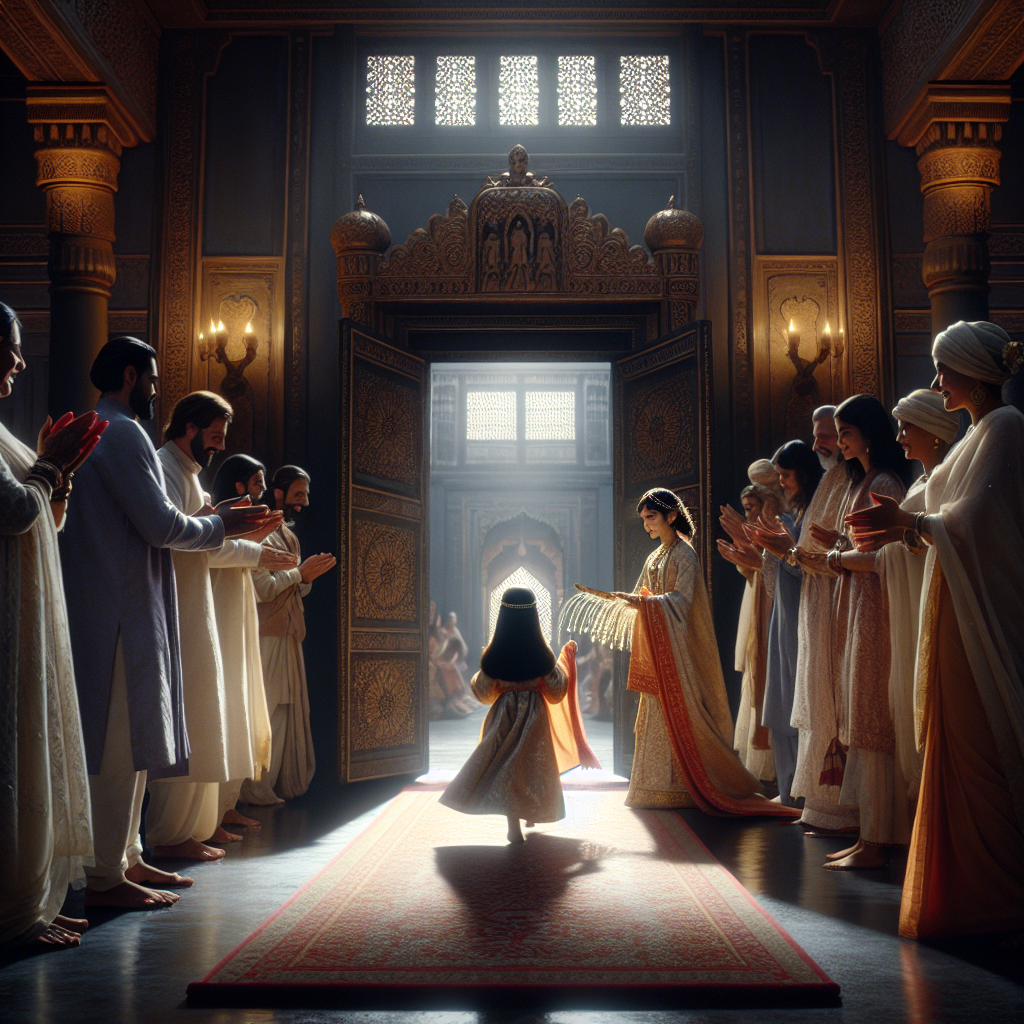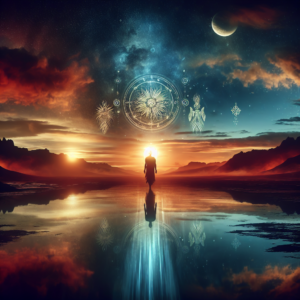Spiritual Devotional about Rituals of Passage
Rituals of Passage: A Celebration of Life’s Great Transitions
Life is an extraordinary journey, a series of profound transitions, each one worthy of acknowledgement and celebration. It is in this spirit of honoring life’s milestones that humans from every corner of the world have, since time immemorial, observed a variety of Rituals of Passage.
Defining Rituals of Passage
Often marked with deep symbolism and rich cultural heritage, Rituals of Passage (also known as rites of passage) involve ceremonies or events designed to celebrate or symbolically acknowledge an individual’s transition from one phase of life to another.
These may commemorate stages such as birth, adolescence, marriage, parenthood and, at journey’s end, death, representing a universal acknowledgement of life’s cyclical nature.
Capturing the Human Experience
These rituals do more than just mark the passage of time. They celebrate the growth and evolution of the individual. They provide a place for friends and family to gather to express love, support, and shared joy. The underlying magic of rituals of passage is their ability to articulate and honor the depth of the human experience.
Variations across Cultures
From the joyous cries that greet a newborn to the solemn ceremonies of funerals, an intimate exploration into rituals of passage opens up a diversity of traditions that span the globe. Each with their unique interpretations and processes, but all sharing a common thread — honoring life’s milestones.
Rites of Passage in Modernity
These rituals continue to evolve, as our societies and cultures do. Contemporary rites of passage could include graduations, the purchase of a first home, or even undertaking a dream travel adventure. Some traditions may have faded, but the human need to celebrate life’s milestones and transitions remains as vibrant as ever.
Conclusion
In every culture, in every era, the rituals of passage play a vital role in our collective human story. They weave a rich tapestry charting the journey of life – from birth to death, and every momentous transition in between – and remind us all to celebrate, to honor, and to cherish these irreplaceable milestones.
[email-subscribers-form id=”1″]
Q&A about Rituals of Passage
Q: What does the term “Rituals of Passage” refer to?
A: Rituals of Passage refer to certain ceremonies or rites performed during significant life events, such as birth, puberty, marriage, and death. They signify the transition from one stage or status to another in a person’s life.
Q: Can you give examples of Rituals of Passage?
A: Yes, examples of Rituals of Passage include Bar or Bat Mitzvah in Jewish tradition, Baptism in Christian faith, First Communion in Catholicism, Wedding ceremonies across different cultures, funerals, and retirement parties.
Q: What is the purpose of these Rituals of Passage?
A: These rituals serve to mark the transition from one phase of life to another. They often provide social recognition and support for these changes. They also help individuals and communities understand and accept these changes, reducing potentially associated anxieties.
Q: Are Rituals of Passage tied to specific cultures or religions?
A: Yes, many Rituals of Passage are tied to specific cultures or religions. However, some practices like weddings and funerals are universal, although they vary significantly in how they are conducted around the world.
Q: Can a ritual of passage be secular?
A: Yes, a ritual of passage can be secular. An example is a graduation ceremony, which marks the transition from student life to professional life, or retirement parties.
Q: How do Rituals of Passage affect a person’s social status?
A: Rituals of Passage play a key role in defining a person’s social status. For instance, a wedding ceremony often changes a person’s social status from single to married, with new rights and responsibilities. Similarly, graduations can signify a change from student to professional.



